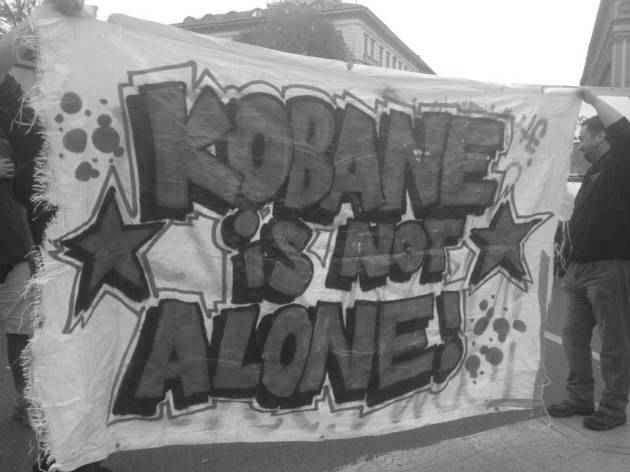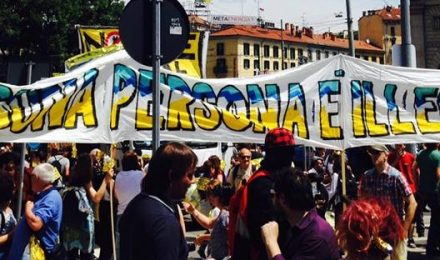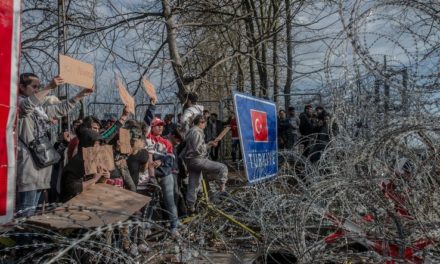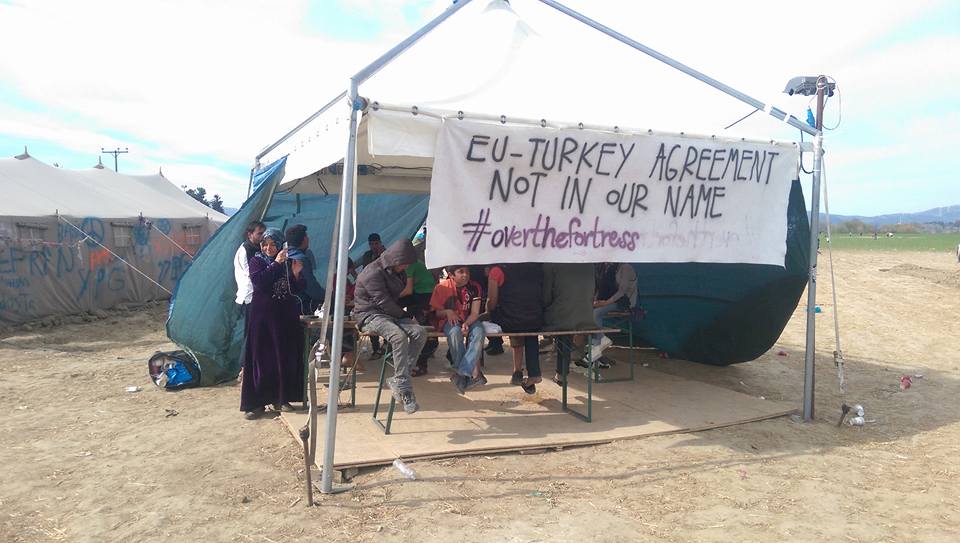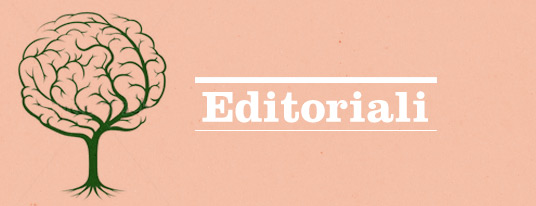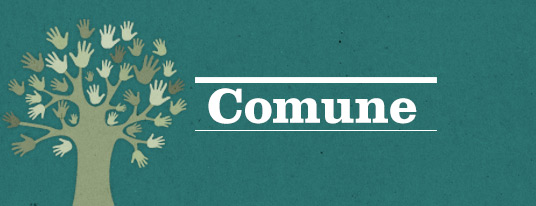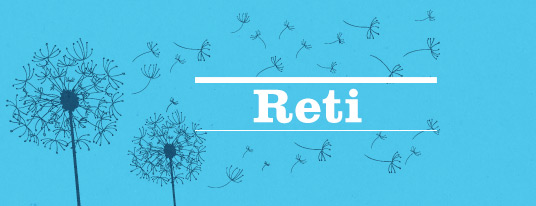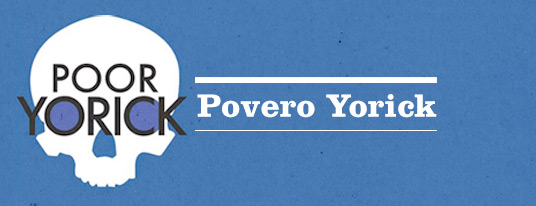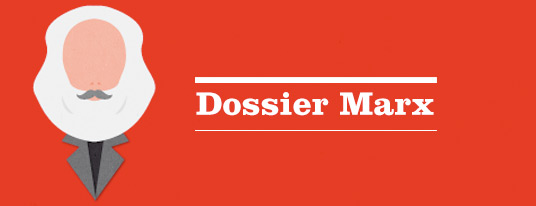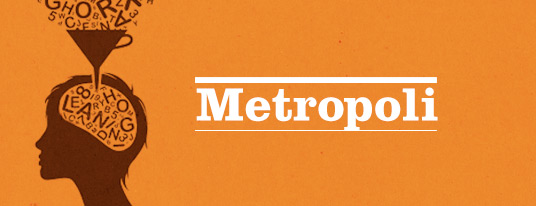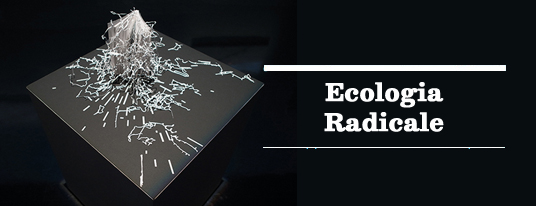di OTONOM.
Da Demokratik Modernite (Istanbul) pubblichiamo questo documento sul concetto e la realtà della democrazia del Kurdish Freedom Movement – organizzazione per la liberazione e la costruzione della democrazia comunista nel Kurdistan. Gli autori sono compagni che hanno a lungo frequentato il lavoro e la teoria operaista. In solidarietà con le loro lotte e le loro conquiste, li ammiriamo e speriamo che vincano la guerra che li oppone a tutti quelli che detestano la libertà.
What is a concept? What might be the point of thinking with concepts? First and foremost, a concept is to capture “differentiation” and “becoming-other” in the flows of life, without turning anything into an “other”. A concept is singularity and difference in itself: a constitutive cooperation based on the wealth of singularities. It is not characterized with transcendence, representation and universality but with immanence, event and expression. Since concept is a signification of life, it is both constituted and constitutive. It is a practice of subjectivity.
For deciding whether any subjectivity has a constitutive character so as to point towards a life to come, one may also start from having a view of the wealth of concepts that it is able to produce. Production of concept is an expression of wealth, vigor and revolutionary character of any subjectivity. If any political subjectivity is incapable of producing concepts, it implies that subjectivity has been losing from its revolutionary character.
The left has been impotent in producing concepts. Concept production on the part of modernist left has been halted and congealed long ago. The set of concepts that is still in use within the modernist left has been inherited from 1789 and 1917. Since the left has been unable to add even one single new concept to the set of concepts inherited from 1917, it is legitimate to say that the plane of existence of the left has been fixed. It is in this sense that the modernist left has lost from its wealth of capacities and plasticity to renew and revolutionize itself. It has been already turned into a sort of conservatism that cuts out the flows of life.
Neither the left nor the right is exempt from this prevailing plane of conservatism. From the point of view of conservatism, concept production is bound to be considered as a risk, since this production always requires a revolution in general intellect. Not surprisingly, in these conditions, a new concept is faced with resistance everywhere. In the face of a new subjectivity on the rise which is expressed in the invention of new concepts, the dominant paradigms set their power in motion, and the rigid patterns of thought call the courts to take action: The judges intervene to interrogate, judge and punish. This is why a concept is always brave but left alone.
“Democratic autonomy” is such a brave and lonely concept. It is the product of the dynamism of Kurdish freedom movement and revolutionary political practice. It is a subjective production which envelops in itself a future in the present against the conservative political plane. Democratic autonomy is the constitutive virtuality that extends beyond the present general intellect of the modernist left in our territory. Thus we believe, with Gezi resistance, the left and revolutionary subjectivity will be able to actualize in the virtual flows as an event.
Democratic autonomy: a global concept
It was during 1960s that the left was confronted with a global crisis and deadlock. Post-structuralism was meant to be an intervention with this crisis which was a crisis neither in organization nor in form of struggle. Above all, it was the crisis of French Revolution of 1789 and thus the crisis of modernist civilization. As is well known, imperialism is the effect of the national form of sovereignty of modernism. Although World Wars I and II were the results of the civilization crisis of modernism, imperialism has never been criticized from this point of view. It is also the same for the left in Turkey which has been submerged and enclosed within the dialectics of imperialism and the national state due to its limited criticism of imperialism which takes its references from the modernist framework itself. It has never been seen that the collapse of the Soviets was the dissolution of that kind of socialism conceived from the perspective of modernism.
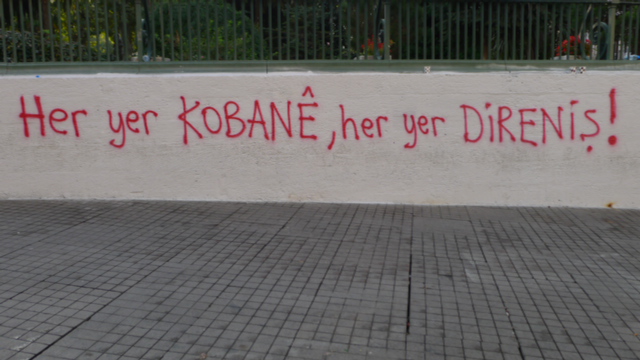 However civilization must be understood as a plane. All concepts and socio-historical dynamics take shape and function on the plane of civilization they belong to. Up until 1960s, the left as a whole and the revolutions had always been products of the modernist civilization. The October Revolution of 1917 was an intervention with the crisis of modernism from within modernism itself. However as the plane of modernism underwent a total crisis, all the concepts and dynamics of this plane were subverted as well. This is why the left has been faced with an identity crisis since 1960s. Modernism has been over, and its fortresses have been already evacuated by capitalism itself. It is precisely in this sense that we have been undergoing a process of constitution of a new form of sovereignty. Capitalism has already been postmodernized with the transition from real subsumption to bio-political subsumption whereas the left is still entrapped within modernism which is already abandoned by capitalism. Therefore the left needs to be reinvented on the basis of critique of both modernism and postmodernism.
However civilization must be understood as a plane. All concepts and socio-historical dynamics take shape and function on the plane of civilization they belong to. Up until 1960s, the left as a whole and the revolutions had always been products of the modernist civilization. The October Revolution of 1917 was an intervention with the crisis of modernism from within modernism itself. However as the plane of modernism underwent a total crisis, all the concepts and dynamics of this plane were subverted as well. This is why the left has been faced with an identity crisis since 1960s. Modernism has been over, and its fortresses have been already evacuated by capitalism itself. It is precisely in this sense that we have been undergoing a process of constitution of a new form of sovereignty. Capitalism has already been postmodernized with the transition from real subsumption to bio-political subsumption whereas the left is still entrapped within modernism which is already abandoned by capitalism. Therefore the left needs to be reinvented on the basis of critique of both modernism and postmodernism.
One can already see the rise of a new plane from within the struggles. Democratic autonomy, as a revolutionary intervention from Mesopotamia with the crisis of the left, is likely to be one of the founding concepts of this new plane in formation.
The Renaissance, as marked by the transition from the plane of transcendence to that of immanence may be called as pre-modernity. It is an exit from the transcendence of universal good and evil defined by a morality which determines us but which is by no means determined. The Renaissance was like a scream declaring that there is no universal good and evil other than determined by our subjectivity. The mind was not counted any more as the human faculty that is closest to that of God, which was a direct assault against the hierarchy of the mind over body. Now the mind would be considered in immanence to labor, as the faculty of body which is closest to human being. The Renaissance is the plane of immanence of dual modernity.
Transcendent modernity has found the conditions of its possibility in the enclosure of and domination over immanent modernity. It restores domination and hierarchy of mind over body and life through the image of “subject.” It is an intervention by metaphysics on metaphysics itself. Modernity in this transcendent form has accomplished secularization of religious metaphysics by dissolving it into science. This is the continuum that Descartes, Kant and Hegel constitute together in their respective attempts to place in the centre of metaphysics “I”, “the subject” and “the state”. The enclosure of plane of immanence in modernity follows a parallel course to the development of the theory of sovereignty. Bodin, Locke, Hobbes and Rousseau, these modern political thinkers all agree on the transfer of natural rights to “One” through a social contract. The modern form of sovereignty was characterized by this division between One and the many, or the political and the social. While the modern philosophy of transcendence and the theory of sovereignty have both collapsed, the struggle of the plane of immanence still continues. It is this struggle of the plane of immanence with its roots in Renaissance that is incarnated in democratic autonomy today.
As we have noted above, the left has been devoid of any tradition of criticism of modernism. The crisis of the left lies in its entrapment within the bourgeois theory of sovereignty. In contrast, the concept of democratic autonomy, as a critique of modernism as well as postmodernism, points to a revolutionary exodus from the bourgeois theory of sovereignty.
Modernism has been based on appropriation of labor’s power to be global by the nation-states. Within the nation states, labor has been turned into the national power of bourgeoisie. The constitution of nation state as a new form of sovereignty cannot be understood within the limits of the struggle against feudalism. Bourgeoisie had always fought on two fronts: against both feudal aristocracy and the working class. Hence nation state is the product of the struggle against working class rather than feudalism. It was a bourgeois counterrevolution in response to 1848 Revolutions. 1848 Revolutions were defeated by the nation state. Enclosure of labor within the political and economic borders, class-ification of labor as waged labor, and political expropriation of labor through nationalization were all achieved by the nation state, which is precisely what the left has never been able to come to terms with.
In the post-1960 era, the whole theoretical and practical quests, among which the movement of 1968 has a central place, have been oriented to intervening with the crisis of modernism and to the rediscovery of the plane of immanence which can be traced back to the Renaissance and its resurrection throughout 1848 Revolutions.
By 1960s, the concept of revolution had already lost from its revolutionary character. Now we need to revolutionize our concept of revolution. We are still imagining! In order to revolutionize the concept of revolution, it is necessary to intervene with the current crisis of civilization and to lead discursive ruptures for a new political grammar to come.
The whole series of concepts that characterize modernity such as individual, citizen, people, property, republic, social contract, rule of law, representation, subject, democracy, party, and trade union have been faced with a serious crisis. The language of modernity falters. And becoming-revolutionary in the 21st century lies in de-nationalization of all these concepts.
The concept of democratic autonomy indicates a discursive rupture with a power to lead to revolutionization of the concept of revolution. It is a revolutionary intervention from Mesopotamia on the crisis of civilization. It speaks a language that is indecipherable by the grammar of French Revolution or October Revolution. Democratic autonomy is a political mother language which may be hard for everyone to learn but which is destined to construct the revolutionary plane of the 21st century.
Kurdish Freedom Movement is the indigenous of the world, and democratic autonomy is the mother language of all the indigenous of the world. After 1848, the dominant political discourse was: “Nationalize the world!”, “Nationalize democracy!” In contrast, the constitutive discourse of the 21st century would be: “De-nationalize the world!”, “De-nationalize democracy!” In this sense, the concept of democratic autonomy cannot be considered only as a response to the local and specific needs of Kurdish Freedom Movement. It points to the most urgent needs of both Turkey and the whole Middle East today. Democratic autonomy has a global appeal as a distinct form of internationalism gifted by Mesopotamia to the whole world.
The modernist left persuades itself that it displays a strong resistance against postmodern capitalism by defending the nation state of the FirstRepublic in Turkey. However the defense and protection of the nation state of the FirstRepublic is bound to be nothing but social chauvinism from the standpoint of Kurdish Freedom Movement. Kurdish movement has already dared to a revolutionary call for “de-nationalization of democracy” whereas the modernist left is still submerged within chauvinism with its defense of nation state. The concept of democratic autonomy, far from being a defense of nation state, is also a political call for liberation of democracy from the state.
Democratic autonomy or communalist democracy
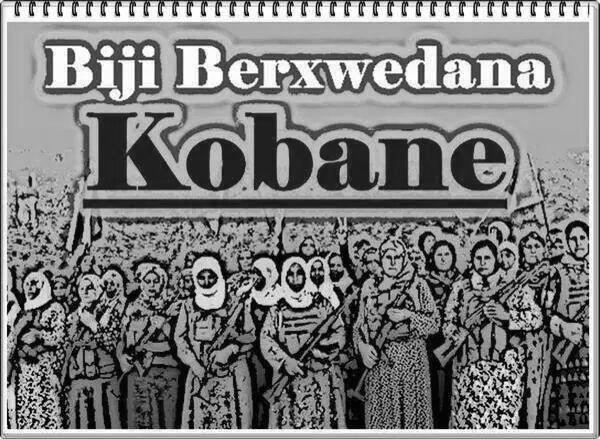 Domination vs. freedom… The ontology and self-affirmation of domination works dialectically. However the ontology and self-affirmation of freedom cannot be dialectical. Freedom is the antagonist constitutive power against the dialectics of domination. From the dialectical point of view, affirmation of “I” can only be possible by posing “non-I”. “I” comes into being through self-negation. Dialectics always consists in production of duality and contradictory movement of being within the hierarchy of this duality. From a dialectical perspective, the political is always a practice of negation, which is also apparent in the movement of capital. Capital is able to affirm itself only through self-negation, which is manifested in its “classification” of labor as waged labor. Waged labor is nothing but a transfiguration of capital. This is why reduction of labor struggle into a battle between waged labor and capital, and degradation of other forms of struggle is pure reformism. The struggle of waged labor ends up with producing capital while the struggle of capital, in turn, produces waged labor. Hence it is a matter of liberating labor from its “classified” form: waged labor. Dialectic is the logic of class production. The struggle of labor consists in de-classification against all the practices of classification on social, political, cultural and national levels. The modernist left has submerged the concept of freedom into dialectics, which as a result rendered communism into a finality framed with economic determinism. This is the same crisis which finally led to the collapse of Soviet Union.
Domination vs. freedom… The ontology and self-affirmation of domination works dialectically. However the ontology and self-affirmation of freedom cannot be dialectical. Freedom is the antagonist constitutive power against the dialectics of domination. From the dialectical point of view, affirmation of “I” can only be possible by posing “non-I”. “I” comes into being through self-negation. Dialectics always consists in production of duality and contradictory movement of being within the hierarchy of this duality. From a dialectical perspective, the political is always a practice of negation, which is also apparent in the movement of capital. Capital is able to affirm itself only through self-negation, which is manifested in its “classification” of labor as waged labor. Waged labor is nothing but a transfiguration of capital. This is why reduction of labor struggle into a battle between waged labor and capital, and degradation of other forms of struggle is pure reformism. The struggle of waged labor ends up with producing capital while the struggle of capital, in turn, produces waged labor. Hence it is a matter of liberating labor from its “classified” form: waged labor. Dialectic is the logic of class production. The struggle of labor consists in de-classification against all the practices of classification on social, political, cultural and national levels. The modernist left has submerged the concept of freedom into dialectics, which as a result rendered communism into a finality framed with economic determinism. This is the same crisis which finally led to the collapse of Soviet Union.
The quests that have accelerated since 1960s are all attempts to rethink the political as a liberating practice rather than a relation of domination, which is to say, attempts to liberate the political from the dialectics of negation in order to reconstitute it on the plane of affirmation. Becoming revolutionary in the 21st century means liberating the theory of antagonism from the reformism of dialectics in order to rethink antagonism in terms of affirmation rather than negation. Resistance cannot arise from deprivation. It must be an expression of wealth. But the wealth of labor is not the same with that of capital. For capital, wealth has the form of money and commodity whereas the wealth of labor is the value stolen from it through money and commodity. The wealth of labor lies in cooperation, collectivity and communalist democracy as desiring production. The plane of revolution would be constituted by liberation of self-valorisation of labor, cooperation, and collective practice from the dialectics of domination and by unleashing self-affirmation within communalist democracy. Democratic autonomy is the exodus from dialectics of domination. It is democracy of self-valorisation. Far from a claim for recognition of our power through struggles of demands playing on the crises of dialectics, democratic autonomy is to lead domination into crisis through affirming our labor and direct exercise of our power as right, with awareness of our wealth. Democratic autonomy is the desiring machine of communalist democracy. From this perspective, communism refers to becoming-immanent to actual political practice. Communalist democracy is the actuality of communism. This is why democratic autonomy is also a powerful call for rethinking communism in its immanence to democratic political practice
Rethinking communism through the political
Problematization of the notion of power entails problematization of the notion of sovereignty, which both lead us to the question of the political. The left often considers the political in terms of relation of domination and as part of the problem of superstructure. Accordingly, democracy, viewed from the perspective of superstructure, is designated as a form of state. The leftist perspective on class is not exempt from such a notion of the political reduced to power and sovereignty. The traditional understanding that the political would be abolished through the abolition of the class is obviously the result of this perspective shaped with the distinction between base and superstructure. However democracy should be considered not as a matter of superstructure but base. Thinking democracy within the limits of superstructure is the same as thinking it within the limits of the bourgeois theory of sovereignty, which leads us to imagine democracy only as bourgeois democracy. This perspective makes it impossible to consider de-classification against classification and communism as a political practice of democracy. The concept of the political is circumvented with class relation and the state. The prolonged crisis of the leftist thought lies in this reduction of the notion of the political, which is also reflected in its conception of communism where the classes are abolished and the political is ended.
In our territory, the question of the political from the standpoint of communism has never been paid attention, which is due to its inability to envision communist society as ethico-political becoming.
A dialectical conception of communism entails to consider it as a finality, which is dependent upon economic emancipation of labor. The political is only a necessary means for the end of economic emancipation of labor. Communism is only possible when labor would be no more a means of subsistence and when social wealth would be so abundant as to allow everyone to live according to his needs in a heaven like economy. In parallel to the view of democracy and the political as a matter of superstructure, communism is treated as a problem of base to be resolved by social wealth and economic accumulation. In this case, communism as a classless society could be reached only through the dialectics of self-affirmation of power. It would be posited as an end to be reached through the dialectics of the state socialism. The state socialism is needed for disciplining the process of social accumulation based on productivity of labor. The history of class struggle within capitalism would be transmuted into the history of development of forces of production in communism. From this perspective, the concept of revolution becomes unimaginable without state or power. As long as labor continues to exist as a means of subsistence, the bourgeois jurisprudence without the bourgeois would continue as well. The state or the political would wither away in parallel to development of forces of production and economic emancipation of labor. It is due to this assumption that the left has remained entrapped within bourgeois political economy and theory of sovereignty. Yet communism is not an economic finality but an ethico-political relation immanent to communalist democracy, collectivism and the common. Communalism is the ethico-politics of a communism immanent to democracy, which entails the power to think revolution without the state and power. It is worthwhile to remember the statement of Marx on communism in German Ideology: “Communism is for us not a state of affairs which is to be established, an ideal to which reality [will] have to adjust itself. We call communism the real movement which abolishes the present state of things. The conditions of this movement result from the premises now in existence.” Communism is neither a final end to be posed nor an ideal. Communism is a becoming-communist within the actual ethico-politics of anti-capitalism. Democratic autonomy suggests a notion of democracy liberated from the state and manifested as communism in act.
Against the background of the prevailing conception of the political mentioned above, the left has identified the notion of the dictatorship of proletariat with the notion of the state, which has led up to its prolonged deadlock. In fact the notion of proletarian dictatorship is much closer to the notion of revolution and commune than that of the state. Although Engels had already warned us anticipating this political deadlock, Marxists have never taken it into consideration. In a correspondence to Bebel in 1875, he said: “We would therefore suggest that Gemeinwesen [“commonalty”] be universally substituted for state; it is a good old German word that can very well do service for the French ‘Commune.’” In spite of Engels’ warning, Marxists have continued to relate the notion of dictatorship of proletariat with the state rather than revolution and commune. The political crisis of the left has its roots here, overcoming of which thus seems only possible with rethinking communism not within the dialectics of the state but as political becoming immanent to communalism and revolution. In this context, the notion of democratic autonomy has a further significance: It calls for an exodus from the bourgeois theory of sovereignty which disciplines our souls as personalized forms of state in order to make way for crystallization of freedom as ethico-political personality.
Communism the political: de-classification against classification
 From the point of view of sovereignty, the political consists in class domination. The matter is which class holds the power. The class state of bourgeois is deemed to be malignant where it is the class state of proletariat that is benevolent; hence the state and power are considered as neutral concepts. In fact Marx, in 18th Brumaire, states: “All revolutions perfected this machine [the state] instead of breaking it. The parties, which alternately contended for domination, regarded the possession of this huge state structure as the chief spoils of the victor.” The principle of political ontology of labor is not perfection but destruction of the state machinery. Power has always been imagined as “a thing” or “object”. However power is not an object but the social relation of production of class. It is like a living organism as a relational social power produced by the conflicts based on the contradictions between classes. Power as this kind of a social relation is dialectical. It is a social factory produced from above as well as below.
From the point of view of sovereignty, the political consists in class domination. The matter is which class holds the power. The class state of bourgeois is deemed to be malignant where it is the class state of proletariat that is benevolent; hence the state and power are considered as neutral concepts. In fact Marx, in 18th Brumaire, states: “All revolutions perfected this machine [the state] instead of breaking it. The parties, which alternately contended for domination, regarded the possession of this huge state structure as the chief spoils of the victor.” The principle of political ontology of labor is not perfection but destruction of the state machinery. Power has always been imagined as “a thing” or “object”. However power is not an object but the social relation of production of class. It is like a living organism as a relational social power produced by the conflicts based on the contradictions between classes. Power as this kind of a social relation is dialectical. It is a social factory produced from above as well as below.
When the political is viewed within the dialectics of power, it naturally leads to an image of politics concerned with taking and maintaining the power. For the same reason, when the working class takes the power, labor would continue to produce itself as a class under the form of waged labor. However revolution, commune and communalist democracy can only be imagined as political practice of de-classification against classification.
Liberation of labor from production of power as a relation of class production is inherently political. The political in self-affirmation of labor consists in exodus from classification of labor as waged labor, which is simultaneously an exodus from transcendence and power. The political from the point of view of self-affirmation of labor is nothing but simultaneous destruction of power and constitution of an ethico-political plane of non-power. There is a not a contradiction but an antagonist difference between the conception of the political of capital and that of labor. Antagonism lies in de-classification against classification. Capitalism is identified with political society while communism is distinct as an ethico-political society. It is characterized with revolutionization and democratization of life rather than of representation, subject and power. Freedom and communism is not a utopian heaven but a continuous ethico-political becoming. Communism is not a future to come but an actual political practice. The political ontology of freedom should be elaborated in terms of de-classification viewed from the lens of the political.
For Marx, the historical significance of the concept of working class does not lie in poverty or deprivation of class but in its being the only class with a power to self-refusal. Constitution of class interest as a general interest cannot be separated from abolishment of all social relations of classification. From class point of view, colonialism, assimilation, chauvinism or patriarchy are only different forms of relations of classification. It is precisely in this sense that democratic autonomy is a claim against not only classification in the factory but all social relations of classification within the social factory.
Rethinking the political: practice of freedom
Nostalgia for Ancient Greece where philosophy is supposed to be born has been widespread among thinkers. Why was philosophy born in Ancient Greece? The general opinion is that philosophy was a response by reason and science to mythology. It was marked by a transition from mythological and imaginary thought to abstract and conceptual thinking. Presentation of Thales as the first scientist is very stereotypical and exemplary of this line of argument. However it was also this Thales who thought that God is omnipresent. His thought was a moment of the transition from an anthropomorphic and polytheistic conception to a monotheistic conception as an illustration of abstract and conceptual thinking. The concept of theology was first coined by Plato, who, together with Aristotle, suggested the abstract notion of one God. All in all, metaphysics has always served as the plane of religious philosophy.
Therefore it is misleading to suggest that Ancient Greek philosophy abandoned the plane of religion. Instead, it is a definitive moment in philosophical thought where the hierarchy of mind over body was established. The religious moment has been always so strong in philosophical thought that Hegel defined “concept” as identical with God. Accordingly “reason” cannot be taken as an exclusive modern concept. In fact it is an ancient concept of Western thought; and modernism, with its attempt to restore the hierarchy of reason through its secularization in the guise of “subject”, is naturally part of this tradition of thought. Hence the answer to the question why philosophy was born in Ancient Greece must be formulated with a juxtaposition of philosophy not with religion but politics.
Aristotle may be said to suggest three spheres of practice: morality, politics and technology. Practice as a virtue and freedom in Aristotle is defined as an activity whose end is immanent to itself. It is certain that morality and politics are characterized with this kind of activity. However it is more or less controversial to attribute it to technology where the requirement of “tools” is inherently marked with separation of means and ends. From this point of view, slaves would be supposed to be “speaking tools” since their ends are imposed on them from outside. The Aristotelian distinction between the spheres of freedom and necessity is intimately related to these two images of practice. The spheres of morality and politics are the sphere of freedom which is imagined as an activity with its end immanent to itself. And the slaves with their ends imposed from outside are members of the sphere of necessity, which is the condition of possibility of free time and culture. The sphere of necessity is the non-political, where freedom only rests in the political.
It is on this basis that the city-state in Ancient Greece is a political and virtuous society composed of free and equal citizens. The city state is built on the well known conception of human being as political animal. In this sense, the rise of philosophy in Ancient Greece cannot be isolated from this notion of a free society of equal citizens.
The collapse of the system of city-state in Ancient Greece to be replaced with the reign of Roman Empire resulted in displacement of the figure of citizen by the figure of subject. This was also a moment of shift in the meaning of the political where the political was to be seen primarily as a relation of domination over the sphere of necessity. The political was not any more conceived as practice of freedom but as a matter of domination, exploitation and power. Given this genealogy of the political, democratic autonomy is also a call for rethinking the political as a sphere of freedom.
The Turks think over the state, but the Kurds on society
The fact that the Ottoman Empire rested on a self-perception depicting itself as the third Roman Empire has often been missed by the left. Portrayal of Ottoman Empire as a semi-colonized and oppressed empire from a third-worldist point of view is completely misleading.
The history of writing started in Mesopotamia. Egypt, the country of Pharaohs, is located in this region. The divine religions of Judaism, Christianity and Islamism were revealed in this territory. Abraham, Moses, Jesus, Mohammad and hundreds of prophets were born and died in this region. Many of the city states of Ancient Greece were established on the coast of Aegean Sea. It is this tremendous cultural wealth that we inherited, a legacy which is by no means easy to protect and keep alive. However it must be clear that this vast geography of culture cannot be appropriated by any nation or nation state. So far this legacy has been expropriated by the states from multiplicity of societies. Democratic autonomy is also a claim for democracy which would not dominate but save and enrich the legacy of humanity in this region.
The public space in Ottoman Empire was never citizen-oriented. A notion of the political based on citizenship was even unimaginable. The political in Ottoman Empire was a relation of domination, which is also reflected in the representation of public figure by servant rather than citizen. Furthermore bureaucracy, as the public sphere within the state, consisted of the devshirme, the children selected from non-Muslim population to be educated in Enderun to be recruited in their adulthood for military and bureaucratic offices. In Turkish political culture, the predominantly bureaucratic character of the political can be traced back to the so-called Ottoman tradition of government. In parallel to the image of society as a community of subjects and believers rather than citizens, the political is characterized with the act of “supplying or bestowing” rather than “demanding or acquiring”. The political culture of public space is thus shaped with subjection under the bonds of loyalty, Turkification, Muslimization and assimilation. While the political based on citizenship produces equality and freedom, servitude based on loyalty produces bureaucracy. Today this bureaucratic political culture continues to hold its grip over the so-called citizens of the Republic. And democratic autonomy is also a call for breaking with this political culture based on subjects and believers for its replacement with a culture of citizenship based on not grant but demand.
A social-political geography always includes democratic tendencies peculiar to itself. In Roman Empire, this democratic dynamic is represented by the plebs against the patricians. The democratic figure of the 18th and the 19th centuries was the proletariat in its struggle for 8-hour working day and universal suffrage. And the major democratic dynamic of Anatolia is its multicultural body. The condition of possibility of democracy in our country is liberation of this multicultural body on the basis of free and equal citizenship. The left’s argument that Turkey has not accomplished nationalization and democratization due to imperialism and lack of a capitalist development based on internal dynamics is nothing but vulgar orientalism. On the contrary, the truth is that democracy has not been achieved so far due to a process of nationalization and democratization that is devoid of any foundation in this multicultural body. The nationalization process initiated by the foundation of the TurkishRepublic in 1923 was based on a chauvinist nationalism based on the strategy of Turkification. The FirstRepublic had always been anti-democratic and chauvinist against the democratic constituents of this territory. The modernist left has to face this truth with liberating itself from its orientalist perspective. Democratic autonomy is also a call for democracy and freedom against the chauvinism of 1923.
In contrast to Turkish political culture where the state is deemed to be the only political constituent, the Kurdish political culture is shaped with a long tradition of political agency vested in society. For Kurds, the state is not an agent of freedom but of domination, assimilation and chauvinism. In their view, thinking on democracy is inseparable from thinking democracy against the state. Kurdish Freedom Movement is not only the power to democracy and freedom of Kurdish people but also of all the people in this territory. The critique of nation state and political democracy embedded in the notion of democratic autonomy is the scream of the historical conscience and immanent power of this territory. Now it is time to question the public space politically with a view to a communalist democracy based on the refusal of class production. The political grounds for democratic autonomy are found in a new definition of citizenship with reference to refusal of classification.
From the point of view of communalist democracy, the social refers to cooperation and the common whereas for capital, it is rooted in the private and property. Private appropriation of the social limits the concept of public space with superstructure and political democracy. In contrast, construction of the social as cooperation and the common enables unlimited development of democracy. The political democracy is nothing but narrow and transcendent conception of the political. Within the narrow limits of political democracy, just as the waged labor is not a citizen of factory democracy in the production process, the student is also not a free and equal member of university democracy but only a client of University Co. Inc., the commercialized university. The waged laborer which is in fact a waged slave in factory is only a juridical personality. In political democracy, membership to public space as a citizen is only functional to the reproduction of class production. However the citizen of a socialized democracy would be a social individual liberated from the domination of waged labor and work. One would have right to speech, authority and decision in all the spheres of social life. Today a class point of view must entail refusal of classification and constituting the common as an ethico-political relation based on cooperation within socialized democracy. The citizen in political democracy must be replaced with multitude in socialized democracy. A class approach must point to destruction of the bourgeois notion of citizen based on waged labor and constitution of a new paradigm of sovereignty of multitude based on communalism of socialized democracy. Becoming revolutionary in the 21st century is bound up with both critique of nation state and political democracy, and verification of communalist democracy, that is, the democracy of multitude. The notion of democratic autonomy has both strengths.
Kurdish Freedom Movement has already achieved to liberate its right to sovereignty from any mediation of demand and representation. Democratic autonomy is a refusal of politics of hegemony informed by the dialectics of right and power. Instead it opens up a new plane where right and power is identical. In communalist democracy of democratic autonomy, it is not the representative subjects but the social subjectivities themselves that speak. Democratic autonomy is an ethico-political paradigm that does not speak on behalf of people but let them speak for themselves. This is precisely why it does not need any “state” or “power”. Kurdish Freedom Movement no more argues for political independence, political democracy or political freedom, all of which are inseparable from existence of state and representation. Instead, they call for social autonomy, socialized democracy and social freedom. Democratic autonomy is based on the political power of multitude to liberate differences.
From the perspective of the modernist left, the political struggle has no other sense than waiting for the crisis of the system to come and intervening at the moment of crisis. This paradigm of crisis has exhausted. Now the question is the ability of the revolutionary movement to drive the system into crisis in its practice of self-affirmation. The politics of democratic autonomy is not a revolutionary strategy that awaits the crisis to come but one that permanently throws the system into crisis with its ability to determine the sphere of political struggle. At the moment we have been already holding the government of almost a hundred municipalities in Turkey and we have a revolution born in the cantons of Rojava. We can shake the world! Hopes for another world may blossom! Democratic autonomy is a hope for another world! Kobanê is the Paris Commune of the 21st century!
Questo testo è stato pubblicato in Demokratik Modernite, v.9, 2014.

